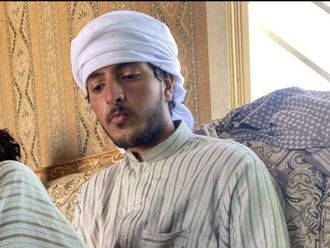Abu Dhabi: The UAE has been standing with the Afghan people by extending political and economic support, both at a bilateral level and through international multilateral mechanisms, to implement projects for infrastructure, reconstruction and economic recovery.
The UAE has offered assistance for vital developmental projects in health, agriculture, social and security sectors, as part of efforts aimed at restoring security, peace and stability, and at countering terrorism.
Over the last five years, the UAE has contributed over $400 million (Dh1,468 million) in security, economic, humanitarian and development assistance to Afghanistan, according to the UAE Ministry of Foreign Affairs and International Cooperation.
The Fatima Bint Mohammad Bin Zayed Initiative (FBMI) for traditional Afghan carpet weaving project and development of the Afghan countryside is an example for sustainable development projects for empowering women. The FBMI employs nearly 3,000 workers — 90 per cent of whom are women.
The Abu Dhabi Fund for Development (ADFD) has allocated around $78 million so far towards implementing a housing project in Kabul, which aims to provide 4,000 housing units for Afghan people, especially widows, orphans and the disabled. Also, Dubai Cares pledged $1.3 million for primary education, pre-schooling development programmes and eradication of illiteracy in Afghanistan.
The UAE projects in Afghanistan also included a $27.8-million Emirates Mine Clearance Programme in Kandahar and other contributions to the Nato-led International Security Assistance Force (ISAF).
Another project, being implemented in cooperation with Kardan University in the capital Kabul, will offer Afghan students scholarships funded by the UAE.
Privately, the UAE people have contributed $22 million for food, medicine and basic relief projects providing housing and shelter in Afghanistan, according to official announcements. In addition, the UAE Red Crescent has invested $19 million in local projects, and the UAE government has dedicated $30 million to international reconstruction efforts in the country.
Through organisations such as the Red Crescent, the generous donations made by UAE citizens and volunteers have contributed to the construction of many institutions. They include 11 schools educating 300 students per day, six medical clinics that have treated 35,000 Afghan patients, Zayed University in Afghanistan, which serves over 6,400 students per year, a major hospital with an annual capacity of 7,000 patients and 38 mosques each providing a prayer facility for several hundreds of people, a general public library serving more than 400 students and visitors per day, accommodation in Zayed City for 200 displaced families and 160 wells providing healthy drinking water.












